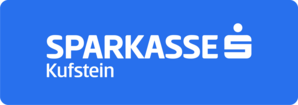
Apply
now
now
Introduction to Applied Economics
level of course unit
BachelorLearning outcomes of course unit
Students are able to
• name the essential components of a market model and discuss the market equilibrium as an interaction of supply and demand.
• identify the determinants of consumer demand and explain how they respond to external factors such as changes in income.
• explain both the potentials and the limitations of market models based on real-world markets, for example the housing or labor market, and to buttress abstract models with real-life examples.
• understand production decisions in companies and interpret the influences of market structures on price setting.
• examine and critically evaluate current developments on the basis of models.
• name the essential components and institutions of a national economy and explain how they function.
• identify macroeconomic indicators such as gross domestic product or consumer price index and explain their meaning.
• conduct independent research on indicators important for economic growth and inflation and to present current developments in this regard.
• name the essential components of a market model and discuss the market equilibrium as an interaction of supply and demand.
• identify the determinants of consumer demand and explain how they respond to external factors such as changes in income.
• explain both the potentials and the limitations of market models based on real-world markets, for example the housing or labor market, and to buttress abstract models with real-life examples.
• understand production decisions in companies and interpret the influences of market structures on price setting.
• examine and critically evaluate current developments on the basis of models.
• name the essential components and institutions of a national economy and explain how they function.
• identify macroeconomic indicators such as gross domestic product or consumer price index and explain their meaning.
• conduct independent research on indicators important for economic growth and inflation and to present current developments in this regard.
prerequisites and co-requisites
None
course contents
Part A: Core topics
• Economic thinking and marginal analysis
• Efficient allocation of scarce resources
• The market model and market equilibrium
• Macroeconomic variables (GDP, inflation, and unemployment) and their interrelationships
Part B: Selected macroeconomics issues
• Elasticity and welfare
• Cost functions and optimal corporate production
• Price setting and market structures
• Short-term macroeconomic fluctuations: The business cycle
• Money, the ECB, and inflation
• Long-term economic growth
• International relations and trade
• Economic thinking and marginal analysis
• Efficient allocation of scarce resources
• The market model and market equilibrium
• Macroeconomic variables (GDP, inflation, and unemployment) and their interrelationships
Part B: Selected macroeconomics issues
• Elasticity and welfare
• Cost functions and optimal corporate production
• Price setting and market structures
• Short-term macroeconomic fluctuations: The business cycle
• Money, the ECB, and inflation
• Long-term economic growth
• International relations and trade
recommended or required reading
• Breyer, F. (2020). Mirkoökonomik: Eine Einführung. Berlin-Heidelberg: Springer Verlag.
• Clement, R., Terlau, W., Kiy, M., & Gehringer, A. (2023). Angewandte Makroökonomie: Makroökonomie, Wirtschaftspolitik und nachhaltige Entwicklung. München: Verlag Franz Vahlen.
• Edling, H. (2023). Volkswirtschaftslehre - Schnell erfasst. Berlin-Heidelberg: Springer Verlag.
• Forner, A. (2022). Volkswirtschaftslehre: Eine praxisorienterte Einführung. Wiesbaden: Springer Verlag.
• Kolmar, M. (2021). Grundlagen der Mikroökonomik: Ein integrativer Ansatz. Berlin-Heidelberg: Springer Verlag.
• Clement, R., Terlau, W., Kiy, M., & Gehringer, A. (2023). Angewandte Makroökonomie: Makroökonomie, Wirtschaftspolitik und nachhaltige Entwicklung. München: Verlag Franz Vahlen.
• Edling, H. (2023). Volkswirtschaftslehre - Schnell erfasst. Berlin-Heidelberg: Springer Verlag.
• Forner, A. (2022). Volkswirtschaftslehre: Eine praxisorienterte Einführung. Wiesbaden: Springer Verlag.
• Kolmar, M. (2021). Grundlagen der Mikroökonomik: Ein integrativer Ansatz. Berlin-Heidelberg: Springer Verlag.
assessment methods and criteria
• Final exam and
• Quiz
• Quiz
language of instruction
Germannumber of ECTS credits allocated
2eLearning quota in percent
25course-hours-per-week (chw)
2planned learning activities and teaching methods
25 % of the event is covered by eLearning. A combination between online phases (inductive method for the independent acquisition of knowledge and the practice of tasks) and presence phases (deductive method, in which assistance is given in the learning process and knowledge is imparted via frontal lectures) is used.








